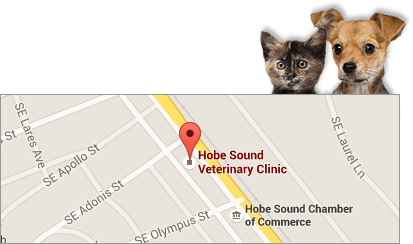If there’s one thing we know for sure about Fido, it’s that he loves food. However, while your pup may happily gobble down anything you put in his dish, all pet foods are definitely not created equal. Here, a vet discusses doggy nutrition.
Reading Labels
Choosing the right dog food can be intimidating! Pet food manufacturers use slick marketing techniques to make their products look as good as possible. However, pet food labeling practices can be deceptive. Get into the habit of reading labels. Look for products that list meat as the first and most numerous ingredient. Avoid brands that contain high amounts of carbohydrate-heavy fillers such as wheat and corn, which really aren’t that great for dogs. Premium foods generally do have higher amounts of nutrients and better quality, so get Fido the best brand you can afford. Ask your vet for specific advice.
Life-Stage Nutrition
Your dog’s nutritional needs will change as he ages. Puppies require nutrient-dense food with lots of protein, fats, vitamins, and minerals, as well as suitable carbohydrates, to help fuel their rapid growth and playful frolicking. Adult doggy diets should focus on maintaining and promoting good health. Your canine buddy’s diet will still consist of protein, healthy fats, vitamins, and minerals, but his food will be formulated differently than a puppy’s. Once Fido becomes a senior, his needs will change again. Older pooches still require lots of protein, as otherwise they can lose muscle mass, but their overall calorie consumption may need to be lowered. Senior dogs may also benefit from eating more Omega-6 fatty acids and antioxidants, like Vitamin E and beta carotene.
Treats
It’s fine—and actually beneficial—to give your furry friend snacks, but don’t go overboard. While the occasional piece of bacon or sausage won’t hurt Fido, in general, try to offer him healthier treats. Sliced deli meat is fine. Cooked, plain, boneless meat, chicken, or fish is also safe. As a rule of thumb, keep treats to about 5 percent of your pet’s daily intake.
Serving Sizes
Serving sizes vary greatly from dog to dog. Fido’s ideal food portions will depend on his age, breed, health, weight, and lifestyle. A Chihuahua only needs a fraction of the calories a Great Dane requires! Proper portion control is crucial for maintaining a healthy weight. For more comprehensive information on this topic, you might find our article on Keeping Your Dog In Shape helpful. Ask your vet for recommendations on appropriate serving sizes for your specific dog.
Our Advice on Your Dog’s Nutritional Needs in 2024
How do nutritional needs vary for dogs with different activity levels?
Dogs with different activity levels have varying nutritional needs to support their energy expenditure and overall health. Active dogs, such as working breeds or those that engage in regular exercise, require higher protein and fat intake to fuel their muscles and maintain stamina. Conversely, less active or sedentary dogs need fewer calories to prevent weight gain and associated health issues. Balancing protein, fats, and carbohydrates based on activity levels helps ensure optimal body condition. Consulting with a veterinarian can provide tailored dietary recommendations to meet the specific needs of each dog.
How often should dogs be fed, and does this frequency change based on age or size?
Dogs should generally be fed twice a day, but this frequency can vary based on age and size. Puppies require more frequent meals, typically three to four times a day, to support their rapid growth and high energy needs. Adult dogs usually do well with two meals a day, while senior dogs might benefit from smaller, more frequent meals to aid digestion and metabolism. Smaller breeds may also need more frequent feeding due to their faster metabolisms, whereas larger breeds often maintain a healthy weight and energy level with two daily meals.
What are the pros and cons of different types of dog food (dry kibble, wet food, raw diets, home-cooked meals)?
Dry kibble is convenient, affordable, and helps maintain dental health through chewing. However, some dogs may find it less palatable or struggle with digestion. Wet food is more appetizing and hydrating but can be more expensive and less convenient to store. Raw diets are touted for their natural ingredients but pose risks of bacterial contamination and nutritional imbalances without proper formulation. Home-cooked meals offer control over ingredients but require careful planning to meet nutritional needs. Consulting with a veterinarian ensures the chosen diet suits the dog’s health, preferences, and lifestyle.
Are there any specific nutrients that are commonly deficient in commercial dog foods?
Commercial dog foods can sometimes lack sufficient amounts of essential nutrients like omega-3 fatty acids, particularly EPA and DHA, which are crucial for skin, coat, and joint health. Additionally, certain vitamins such as vitamin E and vitamin C might be present in inadequate quantities. These nutrients are important for overall immune function and oxidative balance. Regularly reviewing the ingredient list and guaranteed analysis on dog food labels can help ensure these vital nutrients are adequately supplied. Consulting with a veterinarian can provide tailored advice on selecting a balanced diet to meet a dog’s specific nutritional requirements.
What are the signs of food allergies or sensitivities in dogs, and how can they be addressed through diet?
Signs of food allergies or sensitivities in dogs often include itching, skin rashes, ear infections, gastrointestinal upset (vomiting, diarrhea), and even chronic licking or chewing. Addressing these issues through diet involves identifying and eliminating potential allergens. Novel protein sources like venison or duck and limited ingredient diets can help pinpoint triggers. Grain-free or hypoallergenic formulas may also be beneficial. Gradually transitioning to new foods allows for observation of any reactions. Consultation with a veterinarian is crucial to diagnose and manage food allergies, ensuring the dog receives a balanced diet that meets their nutritional needs while avoiding allergens.
Do you have questions about your dog’s diet? Contact us, your pet clinic in Hobe Sound, FL, anytime! We are always happy to help! Our Vet Nutrition and Weight Management service can provide personalized guidance to ensure your dog’s nutritional needs are met and help maintain a healthy weight.




